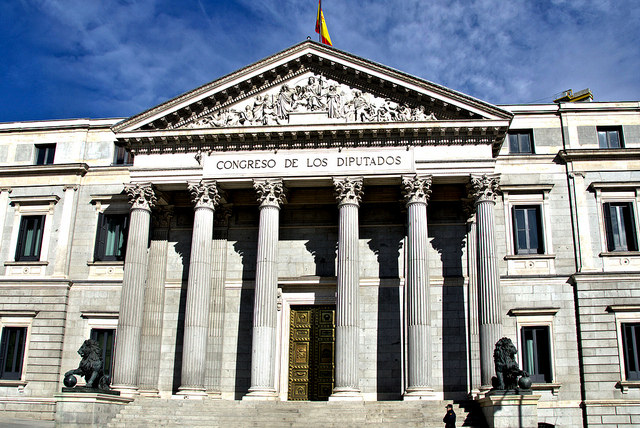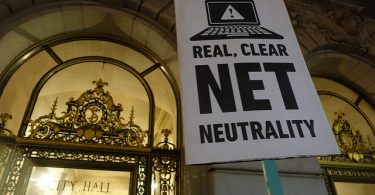Spain’s new law (officially known as Canon AEDE), which requires websites that link to news stories first published by the Spanish newspaper association to pay a tax for that hyperlink, poses a threat to the open Web that should be challenged by ordinary Web users. The current reforms of the Intellectual Property Law, recently approved by the chamber of deputies and pending confirmation of the Spanish Senate next September, will particularly affect sites that rely on the content produced by others in order to create value, as warned by campaigners. Furthermore, it will deeply harm the digital commons. It should be no surprise that it has been dubbed ‘“the most infamous law in the history of the Internet.”
Spain, a country that in the past has led important initiatives towards open access to culture and knowledge, is now tearing down one of the Web’s founding principles. The reforms assert that news editors have an “inalienable right” to levy a fee on the link. The fine for violating the law could be as high as 300,000 euros or $403,053, although research in Spain indicates that firms could eventually expect to pay millions of euros depending on the circumstances. It will harm access to knowledge and the right to participate in culture. The proposed monetization of linking (even if the authors do not want it) will attack the rich Open Access academic space, chip away at the rights of users and lead to restrictions on the freedoms of authors. The new levy on universities that is related to open access to publications will be collected by the Spanish agency Cedro (Centro Español de Derechos Reprográficos) and the virtual campuses of universities will be required to comply.
The reforms also include further provisions that go against the generative, collaborative Web such as:
- A duty to inform about Copyright violations to an administrative commission, which, without due process, could take whole sites down after “reports” from any source.
- Blocking of foreign domain names and cancelling of .es domains.
- Demands for Internet Service Providers, aggregators and advertisement companies to disclose the identity of their users.
These moves come more than a year after Germany passed a similar bill that required Google to compensate smaller outlets for links. The company was able to avoid paying the tax though, when an amendment was passed in the German parliament approved an amendment to the bill that permitted Google to post a story’s headline, without any caption or summary below, for free.
These reforms show the extent that the internet community and ordinary Web users are struggling against a tide of junk internet legislation. Whilst purporting to protect the rights of authors, these kinds of reforms are often weapons to remove content, monitor citizens and to reduce the possibilities of access and collaborative learning, imposed on ordinary Web users in a smoke and mirrors masquerade. Linking is what made the Web what is today, and imposing policy powers to restrict users poses a very real threat that ordinary Web users must fight against.




Leave a Comment